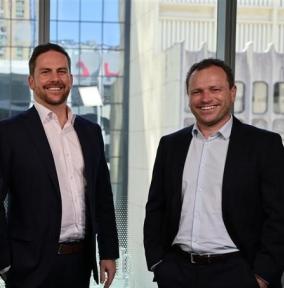Investment Analyst Annabelle Miller reports on how Google never wastes a crisis, looking through short term market ructions to take advantage of its various powerful market positions. It's doing it again now in TV.
As part of their 2004 IPO registration statement, the founders of Google (now Alphabet), Sergey Brin and Larry Page, included an Owner’s Manual inspired by Warren Buffett’s annual Letter to Shareholders:
“As a private company, we have concentrated on the long-term, and this has served us well. As a public company, we will do the same.…If opportunities arise that might cause us to sacrifice short term results but are in the best long-term interest of our shareholders, we will take those opportunities. We will have the fortitude to do this. We would request that our shareholders take the long-term view.”[1]
Google has shown it refuses to bend to recessions when rolling out new products and enhancements. In the depths of the Tech Wreck in late 2000 it launched search capabilities in 13 new languages, including in Japanese, Chinese and Korean, and began to index social media in real time. It also launched what would be become the giant of the new digital media landscape - Google Adwords.[2]
Although Google’s insistence on moving forward when the economy is moving backwards has definitely helped its cause, the economic conditions surrounding the GFC also forced marketers at larger corporations to step back from their current promotional mix and consider its effectiveness. They were confronted by the same problem as John Wannamaker, who said over a century ago that half the money spent on advertising is wasted; the trouble is, the advertiser doesn’t know which half. [3]
In the decade of the ‘noughties a certain amount of wastefulness could perhaps be afforded given strong overall growth. Not so in the decade of the 2010s. The advancement of technology and the recession saw the rise of a promotional mix that concentrated on return on investment and personalisation – perfect for digital media. In response, print advertising in the US declined from US$56 billion in 2009 to US$15 billion in 2019 and classifieds declined from US$12 billion to US$1.2 billion over the same period. Digital advertising spending boomed, rising from US$23 billion to US$129 billion.

Now, in the midst of the pandemic slowdown, part of the current focus will be on growing the direct response advertising platform associated with subsidiary YouTube. Similarly to the 2010 decade when advancements in search technology and search engine marketing made Google AdWords cheap and effective, YouTube is now seeing its technology improve to the extent that its ability to provide direct response-led results can take share from traditional brand advertising that dominates free-to-air TV.
Alphabet’s resources to invest in technology to improve their products is unparalleled, with its balance sheet dwarfing other traditional advertising players.
Where Google was in 2009 the giant of search, so now YouTube is the major player in video. YouTube is creating the wave towards direct response video advertising, but it is also likely to be major beneficiary of that wave.
YouTube is moving to monetise its over two billion monthly active users. New initiatives are aimed at integrating Google Shopping ad inventory with YouTube, with the ultimate goal of making products in videos shoppable. In effect, it is like an advertisement that you see on free to air TV, but the ability to click on the ad immediately and purchase the product. This suits marketers and boards looking to analyse and maximise advertising’s return on investment.
After previously selling out of the stock due to valuation concerns, the Global Companies Fund and Global Opportunities Fund (ASX: PGF) have re-initiated positions in Alphabet, as we expect the business to emerge stronger from the current crisis.
[1] https://abc.xyz/investor/founders-letters/2004-ipo-letter/
[3] https://www.forbes.com/sites/georgebradt/2016/09/14/wanamaker-was-wrong-the-vast-majority-of-advertising-is-wasted/#5837654f483b
Want to be the first to learn about our insights and events? Subscribe below!
More on the Global Companies Fund
More on the ASX-traded Global Opportunities Fund
The content reflects opinions as at the time of writing and may change. PM Capital may now or in the future deal in any security mentioned. It is not investment advice.



